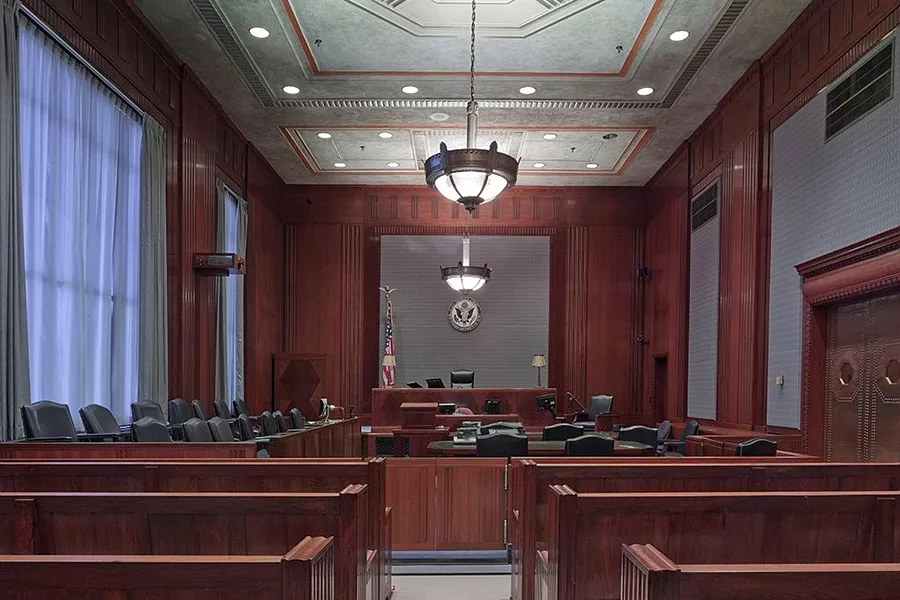
Home » Defendants have a right to counsel, but Tri-Cities struggles to hire enough lawyers
Defendants have a right to counsel, but Tri-Cities struggles to hire enough lawyers

January 13, 2022
Providing legal counsel to criminal defendants and other low-income people facing court proceedings has always been a challenge in the Tri-Cities.
Heavy caseloads, low pay relative to private practice, the lack of a local law school and now Covid-19 has not made it easier.
But with 2022 now in full swing, the Offices of Public Defense for both Benton and Franklin counties are celebrating new hires.
Eric Hsu, manager of the Benton County OPD, welcomed a new intern in early January. Larry Zeigler, his Franklin County counterpart, brought a contract attorney onto staff at the same time – the first in what he hopes will be many new hires.
Recruiting takes luck
Hsu and Zeigler both used the same word to describe the circumstances that led attorneys to sign on to handle indigent defense and the various civil matters mandated by law: “Luck.”
Hsu said he’s struggled to recruit public defenders for the entirety of his 16 years in the position.
His office handles about 7,000 criminal cases as well as some civil ones each year and has a staff of five attorneys and about 40 attorneys working on contracts.
“We’ve always struggled with recruiting people to come to the area,” he said.
The Tri-Cities lacks the amenities and culture that woo the young idealists interested in representing the poor. The nearest law schools are in Seattle and Spokane – placing the community out of reach of internship programs.
His new intern is a young lawyer who is marrying into a Tri-City family.
“This one was a little bit of luck,” Hsu said.
Zeigler was even more prosaic. Since his office formed in 2016, it has relied on contract attorneys to carry out its work. It has about 20, some working for both Franklin and Benton counties.
Franklin County created its own Office of Public defense after a split with Benton County. The formerly joint operation ended when Benton County concluded it needed to attend to its own rising caseloads.
Zeigler, a retired felony defense lawyer, stepped in to create the office.
Initially, attorneys told him they preferred contracts over staff jobs. That’s changed, he observed. Public defense attorneys now ask about paid staff positions with salaries and benefits.
He credits the county commission for being sympathetic and providing what resources it could. His first hire is Sheri Oertel, one of the attorneys who worked under contract.
“She does a super job. I can’t say enough about her. I’m very lucky,” he said.
In Washington, counties provide public defenders to criminal defendants who can’t afford their own lawyers, as required by the Constitution. Defenders represent parents in custody cases and other civil matters. A new law assigns lawyers to juveniles who are arrested.
Threadbare legal deserts
The Washington State Office of Public Defense got a new director in early 2021 when former Thurston County public defender W. Larry Jefferson Jr. was appointed to the post. See related story on this page.
The American Bar Association in a 2020 report noted that unlike urban areas, rural ones are often “legal deserts,” with insufficient numbers of attorneys to represent people in all manner of cases, both civil and criminal.
Area’s challenges
Hsu and Zeigler agree it is a challenge to secure people to serve as defenders, though they describe the underlying causes differently.
For Hsu, the lack of a nearby law schools is the top challenge. Students seek out internships in the cities where they live and often choose to live there as well. Washington has three law schools – the University of Washington, Seattle University and Gonzaga University.
“It’s so much harder for us. We don’t have the money to pay them. The best way is to be close to the law school. That’s one strike against us,” he said.
Culture is another obstacle.
"For those of us who aren’t in our 20s or 30s may not realize, there is absolutely nothing to do here in terms of night life and variety of restaurants and the things people who are younger or with young families,” he said. “We don’t have an aquatics center. We don’t have a children’s museum.”
The government must compete with the private sector on salaries. Like Zeigler, he said his county commission is sympathetic and helped boost salaries. His defenders are paid on the same schedule as attorneys in the prosecutor's office.
Pandemic frustrations
The Covid-19 pandemic has been a challenge too. Court proceedings halted for a year, leading to frustrated defendants and depriving defenders of the courtroom experience they need to work in the profession.
Hsu said defendants charged with serious crimes may have to wait in jail. The consequences of acting out against judges, corrections staff and prosecutors are steep. Some do anyway. More commonly, they vent on their advocates.
“They take it out on their attorneys. They file complaints against them. They yell and scream at them,”” Hsu said.
Burnout is real. Benton County lost two attorneys who were eligible to handle the most difficult cases – major felonies. That put the onus on the six who remained, he said.
“It’s been this downward spiral,” he said.
Zeigler said ever tightening rules designed to ensure defendants have capable attorneys is a deterrent to would-be public defenders.
“The Supreme Court has loaded up the rules of criminal procedure and it’s much easier to make mistakes,” he said.
“I have talked to Olympia until I’m blue in the face,” Zeigler said. “When I started in this business, if a defendant wanted to plead guilty, it was two pages. Now it’s 13-going-on 14 pages. Every one of those pages, there’s a landmine in it somewhere.”
Local News Legal
KEYWORDS january 2022





